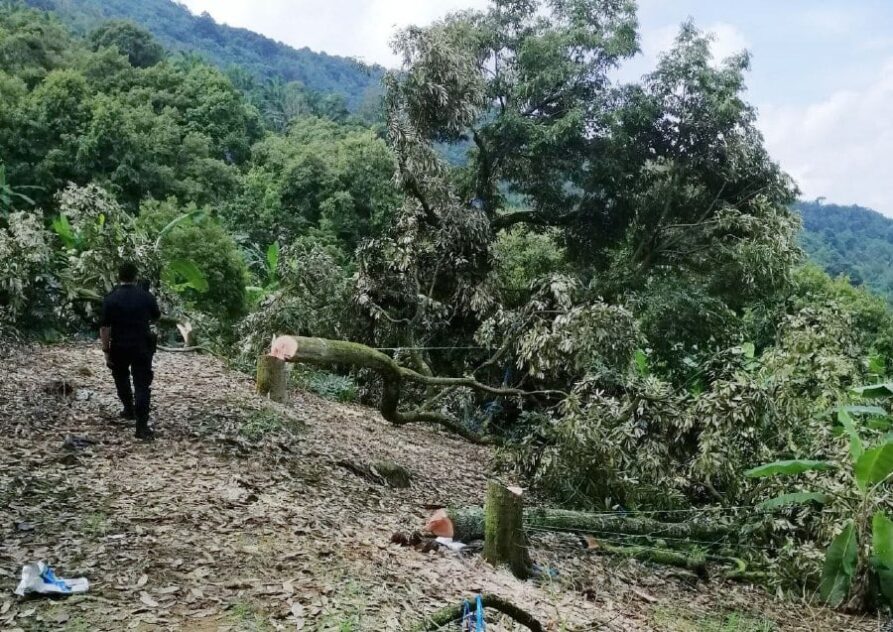By Datuk Chang Kim Loong
THE Strata Management Tribunal (‘Tribunal’) was created pursuant to the Strata Management Act 2013 (“SMA”), which came into force on June 1, 2015. It is a quasi-judicial body clothed with powers and authority to adjudicate on disputes or complaints concerning the performance of duties and exercise of powers conferred or imposed by the SMA.
Parties who are bound by the SMA would be proprietors, developers, management corporations, joint management bodies, property managers and commissioners of buildings.
In simple terms, it is an avenue where various stakeholders or affected persons under the SMA go when there are discrepancies concerning the affairs of stratified properties and to ask for adjudication of certain disputes by the Tribunal. A lot has been written on the overview of the functions and power of the Tribunal.
Malaysia inherited a common law system from its former colonial masters. This means that decisions and grounds of decisions handed down by the courts and other judicial bodies in the country will form a body of case laws which are binding on the courts below, i.e. rulings and decisions by the Federal Court, Court of Appeal and High Court will have to be followed by the Sessions Court and Magistrates Court.
In other circumstances, the body of case law becomes persuasive authorities for courts confronted with cases of similar nature. One of the advantages of common law system is that it promotes consistency of decisions.
Grounds of decision of the Tribunal
In the context of the SMA, the awards and the grounds of awards handed down by the Tribunal can serve as an invaluable source of reference for the public.
As a matter of fact, the SMA makes it mandatory for the tribunal to provide reasons to support its awards. Section 117(2) of the SMA read ‘The Tribunal shall in all proceedings give its reason for its award in the proceedings.’
This provision is similar to Section 16AA of the Housing Development (Control & Licensing) Act 1966 in relation to the Tribunal for Homebuyer Claims and Section 114 of the Consumer Protection Act 1999 in relation to the Tribunal for Consumer Claims.
In interpreting these provisions, the Courts have consistently held that this statutory requirement to give reason is mandatory. Failure to do so will render the said award illegal and liable to be quashed by the courts.
Alternatively, the aggrieved party may apply for a mandamus from the courts to compel the tribunal to give its reasons.
Nonetheless, Section 117 of the SMA is short of stating whether reasons shall be given in written form or it is sufficient to merely provide oral reasons for any awards made.
Hitherto, the courts have taken a rather narrow approach in that the courts considers this requirement is satisfied, as long as the tribunal has given its oral reasons for its award.
In other words, written reasons or grounds of decisions for any award is optional.
The direct consequence of this is that the reasons supporting the awards of the tribunal become shrouded with either secrecy or makes the award incoherent where the public may not be able to understand the rationale of the awards, or which could be weighed down with legal language delivered orally, bearing in mind parties are not permitted to be represented by an advocate and solicitor unless it involves complex issues of law.
While the ruling on sufficiency of oral reasons appears to be motivated by the need to have disputes disposed speedily at the tribunal, there could also be instances where it is desirable to prepare written reasons and thereafter making the same available to the public. For example, publishing the tribunal’s awards and grounds of decision or reasons on the official website of KPKT.
Making available the grounds of decision on official website
The National House Buyers Association (HBA) believes that the lack of written reasons for awards could deprive the public, persons aggrieved or affected by the SMA of proper guidance on matters related to the SMA and the same mistakes are repeated in a vicious cycle of ignorance or misunderstanding.
This could also hamper the development of strata laws and the SMA as a whole since there is no known published body of awards by the Tribunal for comparison or comprehension.
HBA have previously mooted and we now reiterate our call for the publication of awards and reasons for such awards and even if not for each award, this should be done at least for those important awards that will impact the future application of laws.
Firstly, the SMA is a relatively new legislation and strata development has become more complex with the advent of mixed developments, phased developments, developments that incorporate public infrastructures such as the Mass Rapid Transit (MRT) running through, under or above strata properties and there are many lacunas which require the clarification and interpretation of the courts and the tribunal.
By preparing written reasons and thereafter publishing the same, this will enable the public to deepen their understanding and comprehension on the operation of the SMA.
As time progresses and when the law becomes clearer and more settled, there may be lesser disputes and hence reducing the need to lodge claims with the tribunal.
In addition, this will also expedite the decision-making process at the tribunal because the body of decisions will serve as a useful source of reference.
Secondly, by making the written decisions available and transparent to the public, this will instill public confidence on the awards granted by the tribunal. The written reasons will enable the public to understand the rationale of the awards.
For example, the judiciary regularly published its grounds of judgment at its official website to promote transparency and allow the public to understand the rationale behind its decisions. Indeed, reasoned decisions can be an additional constituent of the concept of fairness.
Education, information and empowerment
It was reported that the majority claims filed with the tribunal are practical in nature revolving around issues such as recovery of maintenance charges, disputes on validity of meetings, squabbles between committee members, disputes involving property managers and inter-floor leakages problems.
While these types of cases are generally or perceived as ‘run-in-the-mill’ or standard claims that rarely involve complex arguments on strata laws, the tribunal ought to seriously consider publishing its written reasons with the main purpose of making transparent awards.
This may shed light or clarify the application of various provisions in the SMA for the benefit of the public who may be proprietors, committee members sitting in a Joint Management Body, Management Corporation or SubMC.
Also, there should be a common position adopted by each tribunal for facts which are similar or the same so as to formulate a consistent policy.
We have in fact, time and again, been encouraging the Housing and Local Government Ministry (KPKT) to be transparent and accountable by publishing the tribunal’s written reasons on KPKT’s website.
Perhaps, under a separate section called “Past-Decisions” or “SMT-Resources” as a source of reference and information to the public on the award as that may be relevant to the facts of their dispute.
It could also help pre-empt any potential disputes and motivate parties to settle if the same or similar facts with the outcome from an earlier published case is already known to disputing parties.
HBA urges KPKT to consider HBA’s proposal to encourage the chairman of the Strata Management Tribunal to make available and publish their Awards/ decision/ grounds and make available the avenues for publications from KPKTs website with the end of achieving TEAM, the acronym by HBA for:
T– Transparency in reasons
E– Empowering stakeholders, industry players and the public
A – Making the appointed presidents accountable for their reasons
M -Creating materials as a relevant source of reference and development of laws. – March 13, 2021
Datuk Chang Kim Loong is the honorary secretary general of the National House Buyers Association.
The views expressed are solely of the author and do not necessarily reflect those of Focus Malaysia.
Photo credit: PropertyGuru










